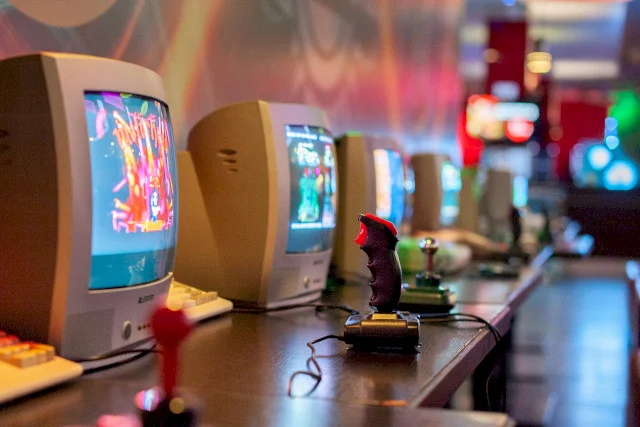
Introduction
Sometimes, your computer can just be slow. Or it might freeze up and not let you do anything at all. But there are some problems that you may encounter with your computer that are more serious than a simple slowdown or frozen screen. I've found that most of these issues can be fixed by following the steps listed below:
Computer Frozen
A computer freeze is when your computer stops responding to commands. It may happen suddenly, or it may be gradual. Either way, you'll know something's wrong because the screen won't respond and you'll need to restart the computer manually.
In some cases, this problem c-an be caused by:
- A virus on your hard drive that has corrupted files (referred to as "bricked" in this case)
- Corruptions in memory modules like RAM or a video card
Monitor Issues
The monitor is the display device that you see on your computer screen. If a monitor has stopped working, it could be caused by a number of different things:
- The power supply. If the cable from your power supply to the back of the monitor is loose or damaged, this could cause problems with your monitor's connection to those pins in its cable.
- The video card (GPU). Your motherboard has integrated graphics cards and they're usually connected directly to their respective sockets on either side of your case where most people don't even think about them or want them installed anymore because there are better options available now days such as Intel HD Graphics 630 vs AMD Radeon RX 560
. But if you're running games on an integrated graphics card then it could be causing problems with your monitor. The cable connecting the motherboard to the monitor (DVI, HDMI or DisplayPort). If your cable is damaged or has come loose from its socket on either end, this could also cause problems with your screen.
Pop-Ups and Virus Warnings
A pop-up is a message that comes up on your computer screen and stays there until you click on it. It’s like a bully in school: the first time you see them, they might be annoying, but eventually they stop being so much trouble and start being funny—at least that was my experience with pop-ups. For example, if I wanted to watch an old movie on Netflix or Hulu (I don’t actually watch movies), I would have to go through all these hoops just to get access to it:
- Open Safari
- Search for whatever movie or TV show I was looking for (for me this can take about 20 minutes)
- Click “Open in New Window” when the site asks what program should open my browser when we hit this page
- Wait while Netflix loads up before finally getting stuck at step 1 again!
On top of all that, I could only watch Netflix on my laptop. If I wanted to watch a movie on the go, I had to download it and then sync up my phone with iTunes (which took even longer).
Slow Computer
- Clean up your computer.
- Delete temporary files (if you have an old program or game that's left behind on your hard drive, it's not going to help your performance).
- Delete unnecessary software, such as browser plugins and other programs that don't do anything but take up space on the hard drive. If there are still things on your computer that are taking up extra memory, consider removing them altogether so you can run more efficiently without any unnecessary bloatware slowing down performance significantly.
- Update all software and drivers for both hardware components (such as keyboards) and software applications (like Photoshop). Also check out our article about how to keep your laptop running at peak performance!
Internet Connection Problems
- Check the internet connection.
- Check the router.
- Check the modem.
- Reset your router if things aren't working properly, or replace it if it's been damaged in some way that affects your internet speed and reliability (such as being bumped around by an overzealous cat).
- Check all cables and connectors, including those on both sides of an Ethernet connection; this can help identify any problems with them too (e.g., loose wires).
- Look into what software firewall programs you may have installed in order to determine whether they're limiting traffic coming into/out of your computer—and if so which ports they're blocking!
You can fix many of your small computer problems at home.
If you're not a tech expert, don't worry: there are many things that can be fixed at home.
First and foremost, use a diagnostic tool to determine what's wrong with your computer. There are many good ones available online that will help you figure out if it's something simple or more complicated than expected.
If you're not sure where to start, try using a tool like Driver Easy. It's a free program that will scan your computer and let you know if there are any outdated or missing drivers.
Conclusion
Hopefully, we've inspired you to get out there and fix those computer problems. If not, at least we've given you the confidence to know that it's possible and maybe even worth your time.



